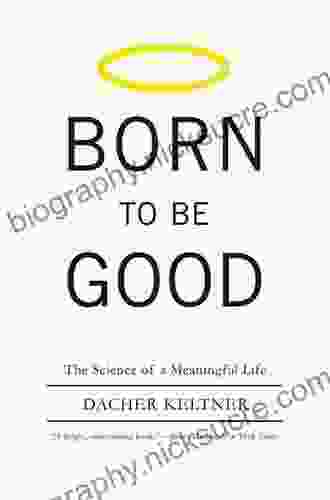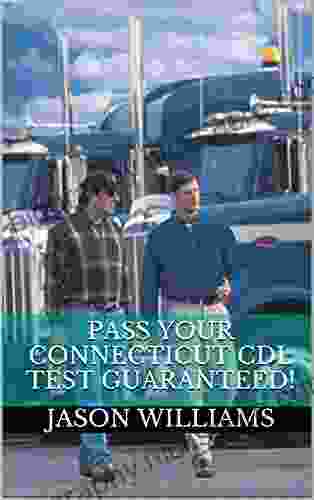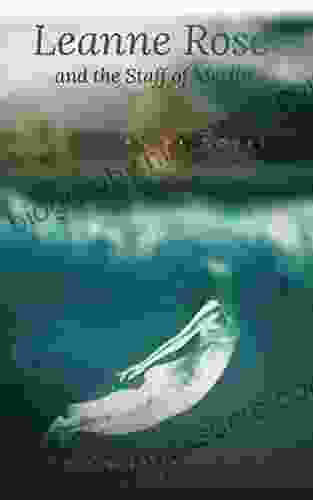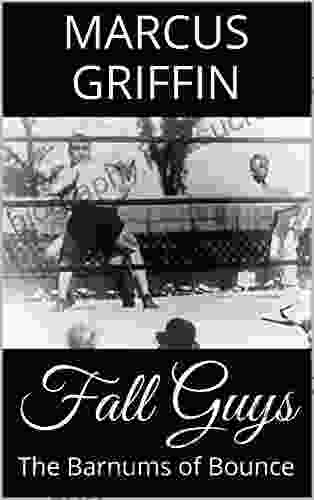"Born to Be Good": Exploring the Innate Goodness of Humanity

Are humans inherently good or evil? This question has been at the heart of philosophical and scientific debates for centuries. In recent years, a growing body of research has suggested that humans may be born with a predisposition towards cooperation and altruism. This perspective, known as the "born to be good" hypothesis, challenges traditional views of human nature as being essentially selfish or aggressive.
In this article, we will explore the evidence supporting the "born to be good" hypothesis and discuss its implications for our understanding of human behavior and society. We will also examine the challenges to this perspective and consider the role of environmental factors in shaping our moral development.
4.3 out of 5
| Language | : | English |
| File size | : | 1164 KB |
| Text-to-Speech | : | Enabled |
| Screen Reader | : | Supported |
| Enhanced typesetting | : | Enabled |
| Word Wise | : | Enabled |
| Print length | : | 353 pages |
Evidence for the "Born to Be Good" Hypothesis
There is a wealth of evidence suggesting that humans may be biologically predisposed towards goodness. One of the most striking pieces of evidence comes from studies of infants. Researchers have found that even very young babies display prosocial behaviors, such as helping others and sharing resources. These behaviors appear to be spontaneous and unmotivated by external rewards.
Another line of evidence comes from studies of empathy. Empathy is the ability to understand and share the feelings of others. It is a key component of prosocial behavior. Studies have shown that humans have a remarkable capacity for empathy. We can feel empathy for people of all ages, races, and cultures. We can even feel empathy for animals.
Finally, there is evidence that humans have a natural aversion to harming others. Even in situations where there is a clear benefit to ng so, most people are reluctant to inflict pain or suffering on another person. This aversion to harm appears to be deeply rooted in our biology.
Implications of the "Born to Be Good" Hypothesis
The "born to be good" hypothesis has a number of important implications for our understanding of human behavior and society. First, it suggests that humans are not inherently selfish or aggressive. This challenges the traditional view of human nature as being essentially evil or sinful. Second, it suggests that prosocial behavior is a natural and fundamental part of human nature. This is a positive and hopeful message that can help us to build a more just and compassionate world.
The "born to be good" hypothesis also has implications for our understanding of social and political institutions. If humans are naturally cooperative and altruistic, then it follows that we should be able to create societies that are based on these values. This is the foundation of the social contract theory of government, which holds that governments are legitimate only if they protect the rights and freedoms of their citizens.
Challenges to the "Born to Be Good" Hypothesis
While the "born to be good" hypothesis is supported by a growing body of evidence, there are still some challenges to this perspective. One challenge is the fact that humans are also capable of great evil. We can be cruel, violent, and destructive. How can we reconcile this with the idea that we are born to be good?
One possible explanation is that our capacity for evil is a result of our environment. Exposure to violence, poverty, and other forms of adversity can lead to negative outcomes, such as aggression and crime. This suggests that the "born to be good" hypothesis is not incompatible with the reality of human evil. Rather, it suggests that our environment can play a role in shaping our moral development.
Another challenge to the "born to be good" hypothesis is the fact that we are also capable of moral conflict. We often find ourselves in situations where we have to choose between two or more competing moral values. For example, we may have to choose between telling the truth and protecting someone's feelings. These conflicts can be difficult to resolve, and they can lead us to make choices that we later regret.
The fact that we are capable of moral conflict suggests that our moral development is not always straightforward. It is a complex and ongoing process that is influenced by a variety of factors, including our environment, our experiences, and our values.
The "born to be good" hypothesis is a promising perspective that challenges traditional views of human nature. It suggests that humans are not inherently selfish or aggressive, but rather that we have a natural predisposition towards cooperation and altruism. This perspective has a number of important implications for our understanding of human behavior and society. It suggests that we are capable of creating a more just and compassionate world if we work together to build institutions that support our innate goodness.
However, it is important to remember that the "born to be good" hypothesis is not a complete picture of human nature. We are also capable of great evil. Our environment can play a role in shaping our moral development. And we are often faced with moral conflicts that are difficult to resolve. These complexities make it difficult to say definitively whether humans are born to be good or evil. Ultimately, the answer to this question is probably somewhere in between.
The "born to be good" hypothesis is a reminder that we have the potential to be good. It is a message of hope that can help us to build a better world.
4.3 out of 5
| Language | : | English |
| File size | : | 1164 KB |
| Text-to-Speech | : | Enabled |
| Screen Reader | : | Supported |
| Enhanced typesetting | : | Enabled |
| Word Wise | : | Enabled |
| Print length | : | 353 pages |
Do you want to contribute by writing guest posts on this blog?
Please contact us and send us a resume of previous articles that you have written.
 Fiction
Fiction Non Fiction
Non Fiction Romance
Romance Mystery
Mystery Thriller
Thriller SciFi
SciFi Fantasy
Fantasy Horror
Horror Biography
Biography Selfhelp
Selfhelp Business
Business History
History Classics
Classics Poetry
Poetry Childrens
Childrens Young Adult
Young Adult Educational
Educational Cooking
Cooking Travel
Travel Lifestyle
Lifestyle Spirituality
Spirituality Health
Health Fitness
Fitness Technology
Technology Science
Science Arts
Arts Crafts
Crafts DIY
DIY Gardening
Gardening Petcare
Petcare Barry Rhodes
Barry Rhodes Mike Loades
Mike Loades Cheryl Erwin
Cheryl Erwin Prince Asare
Prince Asare Beau Miles
Beau Miles W Hamilton Gibson
W Hamilton Gibson Dr Craig Malkin
Dr Craig Malkin Beau Bradbury
Beau Bradbury Jonathan Bergmann
Jonathan Bergmann Timothy Pakron
Timothy Pakron Helen Kara
Helen Kara Tara Brach
Tara Brach Daniel T Willingham
Daniel T Willingham Ben Collins
Ben Collins Ping Li
Ping Li Pavla Kesslerova
Pavla Kesslerova Jenn Mcallister
Jenn Mcallister Bagele Chilisa
Bagele Chilisa Eliza Reid
Eliza Reid Gary Lincoff
Gary Lincoff Cynthia Levinson
Cynthia Levinson Nick Townsend
Nick Townsend Richard Harris
Richard Harris David Aretha
David Aretha Samantha Fitts
Samantha Fitts William Wasserman
William Wasserman Basudeb Bhatta
Basudeb Bhatta Joshua G Shifrin
Joshua G Shifrin Maha Alkurdi
Maha Alkurdi Rachel Smith
Rachel Smith Charles Soule
Charles Soule Tim Ingold
Tim Ingold Jack Newman
Jack Newman Laura Pavlov
Laura Pavlov Guy P Harrison
Guy P Harrison Susan Scott
Susan Scott Leslie Stager
Leslie Stager Kyle Butler
Kyle Butler Kenneth Wilgus Phd
Kenneth Wilgus Phd Buddy Levy
Buddy Levy Simon Spurrier
Simon Spurrier David Abram
David Abram Ian Leslie
Ian Leslie Reprint Edition Kindle Edition
Reprint Edition Kindle Edition Barry J Kemp
Barry J Kemp Rob Hutchings
Rob Hutchings Jeffrey Jensen Arnett
Jeffrey Jensen Arnett Sam Kean
Sam Kean Craig Lambert
Craig Lambert Jonathan Kellerman
Jonathan Kellerman Ron Lemaster
Ron Lemaster Donald R Gallo
Donald R Gallo Mark Rashid
Mark Rashid John Lister Kaye
John Lister Kaye Steve Burrows
Steve Burrows Ryan A Pedigo
Ryan A Pedigo Clayton King
Clayton King Alexandra Andrews
Alexandra Andrews V B Alekseev
V B Alekseev Kate Williams
Kate Williams Susan Dennard
Susan Dennard Sam Cowen
Sam Cowen Suzanne Leonhard
Suzanne Leonhard Joseph Alton M D
Joseph Alton M D Kate Darling
Kate Darling Bridget Flynn Walker Phd
Bridget Flynn Walker Phd Kathleen Masters
Kathleen Masters Matt Taddy
Matt Taddy Christopher L Heuertz
Christopher L Heuertz David A Bogart
David A Bogart Karen Bush
Karen Bush Allan V Horwitz
Allan V Horwitz John Henry Phillips
John Henry Phillips John Garrity
John Garrity Emily Chappell
Emily Chappell Conor Nolan
Conor Nolan C R Hallpike
C R Hallpike Isabel Fonseca
Isabel Fonseca Jenny Chandler
Jenny Chandler Mark Ellyatt
Mark Ellyatt Roanne Van Voorst
Roanne Van Voorst Alastair Hannay
Alastair Hannay James Kilgo
James Kilgo Boy Scouts Of America
Boy Scouts Of America Gabriyell Sarom
Gabriyell Sarom Ellen Lewin
Ellen Lewin Kit Yates
Kit Yates Victor Seow
Victor Seow Mike Massie
Mike Massie Sara Shepard
Sara Shepard Gay Robins
Gay Robins Breanna Hayse
Breanna Hayse Charles Buist
Charles Buist Carlo Collodi
Carlo Collodi Leah Cullis
Leah Cullis Emma Walker
Emma Walker Jen Houcek
Jen Houcek Chiara Sparks
Chiara Sparks Laura Ingalls Wilder
Laura Ingalls Wilder Dan Golding
Dan Golding Philip Maffetone
Philip Maffetone Margaret Owen
Margaret Owen Brian Gilbert
Brian Gilbert Denton Salle
Denton Salle Trish Kuffner
Trish Kuffner Dr Faith G Harper
Dr Faith G Harper David Jamieson Bolder
David Jamieson Bolder Tori Day
Tori Day Dave Rearwin
Dave Rearwin Erica Schultz
Erica Schultz Rob Rains
Rob Rains Deanna Roy
Deanna Roy R L Medina
R L Medina David Klausmeyer
David Klausmeyer Melissa Haag
Melissa Haag Otto Scharmer
Otto Scharmer Eugene V Resnick
Eugene V Resnick Ron Avery
Ron Avery Editors Of Southern Living Magazine
Editors Of Southern Living Magazine T H White
T H White Ascencia
Ascencia Catherine M Cameron
Catherine M Cameron Christopher Taylor Ma Lmft
Christopher Taylor Ma Lmft Gerald Beaudry
Gerald Beaudry Robert Hogan
Robert Hogan Robert Ardrey
Robert Ardrey George Macdonald
George Macdonald Mike Swedenberg
Mike Swedenberg Fabien Clavel
Fabien Clavel Charlotte Browne
Charlotte Browne Noah Brown
Noah Brown Barbara Ann Kipfer
Barbara Ann Kipfer Achille Rubini
Achille Rubini Mykel Hawke
Mykel Hawke Sergei Urban
Sergei Urban David Taylor
David Taylor Mark Young
Mark Young Scott Reed
Scott Reed Tami Anastasia
Tami Anastasia Jenna Helland
Jenna Helland Barry Johnston
Barry Johnston Valerie Pollmann R
Valerie Pollmann R Temple West
Temple West Titus M Kennedy
Titus M Kennedy Hunbatz Men
Hunbatz Men Percy Boomer
Percy Boomer Frederick Douglass Opie
Frederick Douglass Opie Mick Conefrey
Mick Conefrey Graham Farmelo
Graham Farmelo Eric Franklin
Eric Franklin Stephanie Fritz
Stephanie Fritz Malcolm Hebron
Malcolm Hebron John Aldridge
John Aldridge Nancy E Willard
Nancy E Willard Glenna Mageau
Glenna Mageau Thomas Lumley
Thomas Lumley Cary J Griffith
Cary J Griffith John C Norcross
John C Norcross Shmuel Peerless
Shmuel Peerless Randy Baker
Randy Baker Brad Burns
Brad Burns Cindy Post Senning
Cindy Post Senning Lily Collins
Lily Collins Rob Pope
Rob Pope Scarlett Thomas
Scarlett Thomas Smart Reads
Smart Reads Jessica F Shumway
Jessica F Shumway Tim Marshall
Tim Marshall Julie Buxbaum
Julie Buxbaum Constanze Niedermaier
Constanze Niedermaier Jutta Schickore
Jutta Schickore Macauley Lord
Macauley Lord James Duthie
James Duthie Gordon Witteveen
Gordon Witteveen Arnold G Nelson
Arnold G Nelson Sport Hour
Sport Hour Anthony Edwards
Anthony Edwards Emma Brockes
Emma Brockes Howard Zinn
Howard Zinn Stephen K Sanderson
Stephen K Sanderson Shayla Black
Shayla Black Barbara Kennard
Barbara Kennard Jim Fay
Jim Fay Barry Rabkin
Barry Rabkin Barbara Taylor
Barbara Taylor Susan Nance
Susan Nance Lynn Mann
Lynn Mann Barbara Neiman
Barbara Neiman Barbara Rogoff
Barbara Rogoff Print Replica Kindle Edition
Print Replica Kindle Edition Linda Welters
Linda Welters James Duggan
James Duggan Richard H Immerman
Richard H Immerman Joseph Epes Brown
Joseph Epes Brown Stefan Ecks
Stefan Ecks Reelav Patel
Reelav Patel Janis Keyser
Janis Keyser Basu Shanker
Basu Shanker Stanislas Dehaene
Stanislas Dehaene Roy Porter
Roy Porter Erik J Brown
Erik J Brown Rowan Jacobsen
Rowan Jacobsen Ralph Galeano
Ralph Galeano James Syhabout
James Syhabout Edward Lee
Edward Lee Richard Chun
Richard Chun Jaymin Eve
Jaymin Eve Ken Xiao
Ken Xiao Brandon Royal
Brandon Royal Nick Bollettieri
Nick Bollettieri Catherine Shainberg
Catherine Shainberg Sharon Dukett
Sharon Dukett Barry Friedman
Barry Friedman Peter K Tyson
Peter K Tyson Grey Owl
Grey Owl Cait Stevenson
Cait Stevenson Rick Joyner
Rick Joyner Jean Illsley Clarke
Jean Illsley Clarke Hongyu Guo
Hongyu Guo Craig Martin
Craig Martin Melissa Gomes
Melissa Gomes St Louis Post Dispatch
St Louis Post Dispatch Stephen J Bavolek
Stephen J Bavolek Nicholas Wolterstorff
Nicholas Wolterstorff S E Hinton
S E Hinton Hill Gates
Hill Gates Monica Hesse
Monica Hesse Candice Davie
Candice Davie Mackenzi Lee
Mackenzi Lee Master Gamer
Master Gamer Monta Z Briant
Monta Z Briant Muhammad Zulqarnain
Muhammad Zulqarnain David Starbuck Smith
David Starbuck Smith Helen Fisher
Helen Fisher Chris Cage
Chris Cage Farley Mowat
Farley Mowat Mike Commito
Mike Commito Robert A Baruch Bush
Robert A Baruch Bush Brian Switek
Brian Switek Robin Mcmillan
Robin Mcmillan Ronald Wheeler
Ronald Wheeler Hollis Lance Liebman
Hollis Lance Liebman Farzana Nayani
Farzana Nayani Blair Braverman
Blair Braverman John Whitman
John Whitman Kara Tippetts
Kara Tippetts Steven Hawthorne
Steven Hawthorne Martin Sternstein
Martin Sternstein P J Agness
P J Agness Oliver T Spedding
Oliver T Spedding Barbara Gastel
Barbara Gastel Elizabeth George Speare
Elizabeth George Speare Yuki Mano
Yuki Mano Donald Frias
Donald Frias Beth Miller
Beth Miller Catherine J Allen
Catherine J Allen Tom Miller
Tom Miller Luke Gilkerson
Luke Gilkerson Patrick Sweeney
Patrick Sweeney Mark H Newman
Mark H Newman Chase Hill
Chase Hill Edwin R Sherman
Edwin R Sherman Lewis Thomas
Lewis Thomas Ben Povlow
Ben Povlow James C Radcliffe
James C Radcliffe Dustin Salomon
Dustin Salomon Mike High
Mike High Baruch Englard
Baruch Englard Richard Scott
Richard Scott Gordon H Chang
Gordon H Chang Linda Carroll
Linda Carroll Suzanne Wylde
Suzanne Wylde Jack Andraka
Jack Andraka Michelle Rigler
Michelle Rigler Geert Hofstede
Geert Hofstede Daniel P Huerta
Daniel P Huerta Dustin Hansen
Dustin Hansen Dr Michael P Masters
Dr Michael P Masters Sam Harris
Sam Harris T C Edge
T C Edge Paul Van Lierop
Paul Van Lierop Mina Lebitz
Mina Lebitz Toby A H Wilkinson
Toby A H Wilkinson Becca Anderson
Becca Anderson Nadine Hays Pisani
Nadine Hays Pisani Joseph Schmuller
Joseph Schmuller Autumn Carpenter
Autumn Carpenter Sean Mcindoe
Sean Mcindoe Justin Sirois
Justin Sirois Jude Currivan
Jude Currivan Gary Soto
Gary Soto Kara Goucher
Kara Goucher Ryan Higa
Ryan Higa Mike Stanton
Mike Stanton Bb
Bb Steven Bell
Steven Bell Thomas French
Thomas French Debbie M Schell
Debbie M Schell Bruce Pascoe
Bruce Pascoe Ryan T White
Ryan T White Mike Allison
Mike Allison Jane Hardwicke Collings
Jane Hardwicke Collings David Beaupre
David Beaupre Daniel J Barrett
Daniel J Barrett Mark Twain
Mark Twain Elliott Vandruff
Elliott Vandruff Elizabeth Lockwood
Elizabeth Lockwood Dave Karczynski
Dave Karczynski W Scott Elliot
W Scott Elliot John D Barrow
John D Barrow Daniel S Lobel Phd
Daniel S Lobel Phd Jesse Liberty
Jesse Liberty Nina Manning
Nina Manning Barry Glassner
Barry Glassner Jayanti Tambe
Jayanti Tambe David Thomas
David Thomas Richard J Dewhurst
Richard J Dewhurst Jean Smith
Jean Smith Bill Mckibben
Bill Mckibben Mark Mayfield
Mark Mayfield Betty Stone
Betty Stone Chris Eberhart
Chris Eberhart Diane Yancey
Diane Yancey Joanna Hunt
Joanna Hunt Jamie Margolin
Jamie Margolin Cara Koscinski
Cara Koscinski Scott Westerfeld
Scott Westerfeld Steven Rinella
Steven Rinella John G Robertson
John G Robertson Beebe Bahrami
Beebe Bahrami Pat Shipman
Pat Shipman Julie L Spencer
Julie L Spencer Mary A Fristad
Mary A Fristad Bill Milliken
Bill Milliken Richard Weissbourd
Richard Weissbourd Danny Staple
Danny Staple John Quick
John Quick Marshall Jon Fisher
Marshall Jon Fisher Dan R Lynch
Dan R Lynch Chadd Vanzanten
Chadd Vanzanten Barbara Mertz
Barbara Mertz Sampson Davis
Sampson Davis Ernie Morton
Ernie Morton Larry Dane Brimner
Larry Dane Brimner Violet Moller
Violet Moller J Michael Veron
J Michael Veron Massimo Cossu Nicola Pirina
Massimo Cossu Nicola Pirina Crystal Duffy
Crystal Duffy Bobbie Faulkner
Bobbie Faulkner Meghan L Marsac
Meghan L Marsac Janna Levin
Janna Levin Vanessa Garbin
Vanessa Garbin Erica B Marcus
Erica B Marcus Shannon Reilly
Shannon Reilly Jennifer Estep
Jennifer Estep Bashir Hosseini Jafari
Bashir Hosseini Jafari Richard Meadows
Richard Meadows Bonnie Tsui
Bonnie Tsui Fred Mitchell
Fred Mitchell Mark Kurlansky
Mark Kurlansky Colleen Alexander Roberts
Colleen Alexander Roberts Max Marchi
Max Marchi Eric Leiser
Eric Leiser Peter Martin
Peter Martin Lawrence Baldassaro
Lawrence Baldassaro John J Robinson
John J Robinson Robin Knox Johnston
Robin Knox Johnston Eric Engle
Eric Engle Bernard Marr
Bernard Marr Barbara Bassot
Barbara Bassot Jim Wharton
Jim Wharton Robin Nixon
Robin Nixon Daniel M Koretz
Daniel M Koretz Casey Watson
Casey Watson Lew Freedman
Lew Freedman Leon Mccarron
Leon Mccarron Scott Mactavish
Scott Mactavish Barbara Illowsk
Barbara Illowsk Visual Arts
Visual Arts Eddie Merrins
Eddie Merrins Chris Mooney
Chris Mooney Mitch Prinstein
Mitch Prinstein Sam Nadler
Sam Nadler Mia Scotland
Mia Scotland Ben Sedley
Ben Sedley Jennifer Pharr Davis
Jennifer Pharr Davis Michael Wood
Michael Wood Jade Barrett
Jade Barrett Peter Wacht
Peter Wacht Jake Anderson
Jake Anderson Debra Kilby
Debra Kilby Ben Goldacre
Ben Goldacre Nichole Carpenter
Nichole Carpenter Kindle Edition
Kindle Edition Rebecca Rupp
Rebecca Rupp Charles River Editors
Charles River Editors Michael Palin
Michael Palin Nick Neely
Nick Neely S K Gupta
S K Gupta Barzin Pakandam
Barzin Pakandam Marc Loy
Marc Loy Leia Stone
Leia Stone Spencer Wells
Spencer Wells Ellen Notbohm
Ellen Notbohm Paul Doiron
Paul Doiron Nicholas Sparks
Nicholas Sparks William Byers
William Byers Jeremy Sweet
Jeremy Sweet Geoffrey Finch
Geoffrey Finch David Cockburn
David Cockburn Jeff Belanger
Jeff Belanger Wayne B Chandler
Wayne B Chandler Diane Cardwell
Diane Cardwell F William Lawvere
F William Lawvere Leonard M Adkins
Leonard M Adkins Chuck Missler
Chuck Missler Kam Knight
Kam Knight Diane Musho Hamilton
Diane Musho Hamilton Chris Bennett
Chris Bennett Linnea Dunne
Linnea Dunne Jane Butel
Jane Butel Martin Dugard
Martin Dugard Bob Holtzman
Bob Holtzman Pearson Education
Pearson Education Craig Romano
Craig Romano Clifford Herriot
Clifford Herriot Babu The Panda
Babu The Panda William H Frey
William H Frey Siddhartha Rao
Siddhartha Rao Edith Grossman
Edith Grossman David Burch
David Burch Christine Kenneally
Christine Kenneally Lock Gareth
Lock Gareth Scott Malthouse
Scott Malthouse Jessica Smartt
Jessica Smartt J Bruce Brackenridge
J Bruce Brackenridge Burt L Standish
Burt L Standish Holger Schutkowski
Holger Schutkowski Barry Burd
Barry Burd Ray Comfort
Ray Comfort Jay Abramson
Jay Abramson Wanda Priday
Wanda Priday Proper Education Group
Proper Education Group Charlie Shamp
Charlie Shamp Khurshed Batliwala
Khurshed Batliwala Kenton Kroker
Kenton Kroker Charlotte Booth
Charlotte Booth Dacher Keltner
Dacher Keltner Stan Tekiela
Stan Tekiela Nicole Martin
Nicole Martin Rebecca Solnit
Rebecca Solnit Barbara Russell
Barbara Russell Joshua Hammer
Joshua Hammer Benita Bensch
Benita Bensch John Sandford
John Sandford Jeff Alt
Jeff Alt Yang Kuang
Yang Kuang Rachel Dash
Rachel Dash James Koeper
James Koeper Arny Alberts
Arny Alberts Marie Rutkoski
Marie Rutkoski Harvey Wittenberg
Harvey Wittenberg John H Mcwhorter
John H Mcwhorter John Kimantas
John Kimantas Steve Biddulph
Steve Biddulph Rhonda Belle
Rhonda Belle Jill Brown
Jill Brown James Randi
James Randi Thomas Bulfinch
Thomas Bulfinch Joanne Glenn
Joanne Glenn Rachelle Zukerman
Rachelle Zukerman Rachel Morgan
Rachel Morgan Vincent Bossley
Vincent Bossley J C Cervantes
J C Cervantes Yuval Noah Harari
Yuval Noah Harari James M Collins
James M Collins Julian I Graubart
Julian I Graubart Molly E Lee
Molly E Lee Lynn Rosen
Lynn Rosen Vanessa Ogden Moss
Vanessa Ogden Moss Graham R Gibbs
Graham R Gibbs Bryan Peterson
Bryan Peterson Jennifer Traig
Jennifer Traig Marco Grandis
Marco Grandis
Light bulbAdvertise smarter! Our strategic ad space ensures maximum exposure. Reserve your spot today!
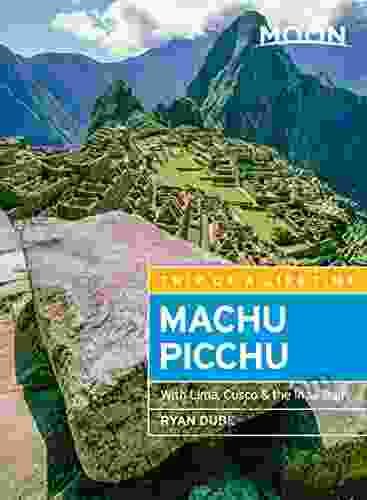
 Harold BlairWith Lima Cusco and the Inca Trail: an Expedition to Uncover the Heart of the...
Harold BlairWith Lima Cusco and the Inca Trail: an Expedition to Uncover the Heart of the... Garrett PowellFollow ·18.8k
Garrett PowellFollow ·18.8k Gary ReedFollow ·4.7k
Gary ReedFollow ·4.7k David Foster WallaceFollow ·8.7k
David Foster WallaceFollow ·8.7k Cruz SimmonsFollow ·3.7k
Cruz SimmonsFollow ·3.7k Kurt VonnegutFollow ·16.6k
Kurt VonnegutFollow ·16.6k Houston PowellFollow ·16.5k
Houston PowellFollow ·16.5k William GoldingFollow ·19.3k
William GoldingFollow ·19.3k Jaylen MitchellFollow ·6.6k
Jaylen MitchellFollow ·6.6k
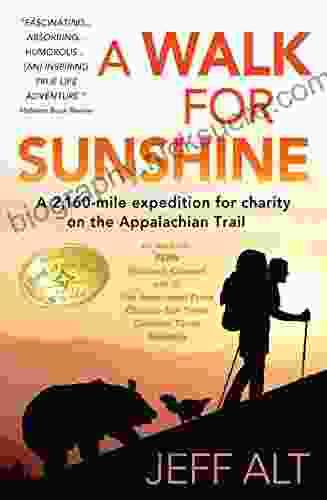
 Israel Bell
Israel BellEmbark on an Epic 160-Mile Expedition for Charity on the...
Prepare yourself for an...
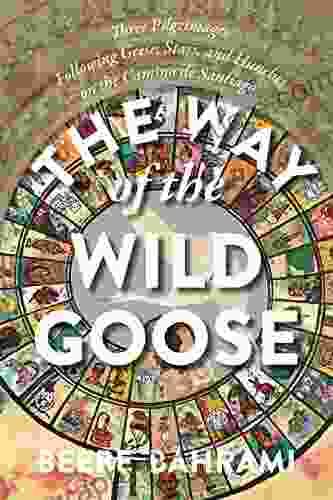
 Josh Carter
Josh CarterThe Way of the Wild Goose: A Journey of Embodied Wisdom...
The Way of the Wild Goose is an ancient...
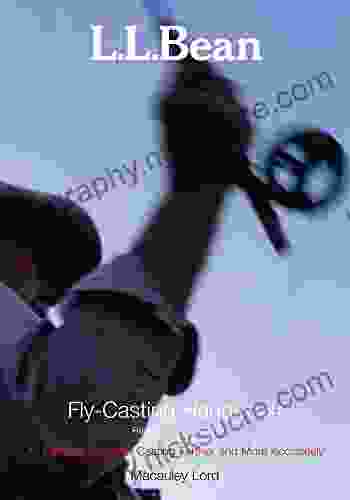
 Allen Parker
Allen ParkerMastering the Art of Bean Fly Casting: A Comprehensive...
Fly fishing,...
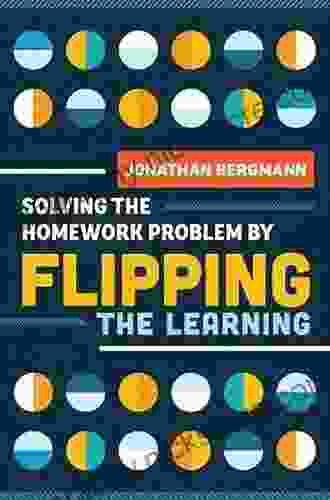
 Aaron Brooks
Aaron BrooksSolving the Homework Problem by Flipping the Learning
What is flipped...

 Fletcher Mitchell
Fletcher MitchellThe Jane Butel Library: A Renewed Source of Knowledge and...
The Jane Butel...
4.3 out of 5
| Language | : | English |
| File size | : | 1164 KB |
| Text-to-Speech | : | Enabled |
| Screen Reader | : | Supported |
| Enhanced typesetting | : | Enabled |
| Word Wise | : | Enabled |
| Print length | : | 353 pages |


